Simple Mechanisms Kit
Categories: Electrical Lab Testing EquipmentDescription This versatile kit is part of a series that allows many experiments using different arrangements of their parts. Students, teachers or lecturers fi t the parts of the kit to the work pane...
Product
Description
Description
This versatile kit is part of a series that allows many experiments using different arrangements of their parts. Students, teachers or lecturers fi t the parts of the kit to the work panel (supplied separately) to study or show an engineering science topic. This kit includes three popular mechanisms for experiments in conversion of motion from linear to rotary, or rotary to linear. These include the Scotch yoke (sometimes called ‘donkey crosshead’ or ‘slotted link’), the crank and slider, and the quick return mechanism. Students test each mechanism to see how it works and note the differences in the way that each mechanism converts the motion. The three mechanisms are the same as those used in real applications, such as combustion engines, power assisted valves or fluid pumping systems. Each has a unique way of converting motion, shown by the experiments. The kit introduces students to key engineering terms such as reciprocating motion, rotary to linear motion and linear to rotary motion. We supply a CD-ROM with the work panel . It includes all the worksheets, guidance notes and lecturer notes (with answers) needed for typical experiments with each kit. The selection of parts in the kits and the choice of fi xing points on the work panel means that teachers or lecturers may extend the experiments to an even greater range. Note: The kit is for use with the work panel (supplied separately)
Learning Outcomes
- Conversion of motion using the ‘Scotch yoke’ (or ‘slotted link’)
- Conversion of motion using the quick return mechanism
- Conversion of motion using the crank and slider
Specifications
Atico is committed to a programme of continuous improvement; hence we reserve the right to alter the design and product specifi cation without prior notice.
Storage tray (with clip-on lid):
450 mm x 320 mm x 85 mm
Nett weight:
3.5 kg
Packed volume and weight:
Approximately 0.015 m3 and 4 kg
Main parts:
• Scotch yoke
• Crank and slider
• Quick return mechanism
Description
This versatile kit is part of a series that allows many experiments using different arrangements of their parts. Students, teachers or lecturers fi t the parts of the kit to the work panel (supplied separately) to study or show an engineering science topic. This kit includes three popular mechanisms for experiments in conversion of motion from linear to rotary, or rotary to linear. These include the Scotch yoke (sometimes called ‘donkey crosshead’ or ‘slotted link’), the crank and slider, and the quick return mechanism. Students test each mechanism to see how it works and note the differences in the way that each mechanism converts the motion. The three mechanisms are the same as those used in real applications, such as combustion engines, power assisted valves or fluid pumping systems. Each has a unique way of converting motion, shown by the experiments. The kit introduces students to key engineering terms such as reciprocating motion, rotary to linear motion and linear to rotary motion. We supply a CD-ROM with the work panel . It includes all the worksheets, guidance notes and lecturer notes (with answers) needed for typical experiments with each kit. The selection of parts in the kits and the choice of fi xing points on the work panel means that teachers or lecturers may extend the experiments to an even greater range. Note: The kit is for use with the work panel (supplied separately)
Learning Outcomes
- Conversion of motion using the ‘Scotch yoke’ (or ‘slotted link’)
- Conversion of motion using the quick return mechanism
- Conversion of motion using the crank and slider
Specifications
Atico is committed to a programme of continuous improvement; hence we reserve the right to alter the design and product specifi cation without prior notice.
Storage tray (with clip-on lid):
450 mm x 320 mm x 85 mm
Nett weight:
3.5 kg
Packed volume and weight:
Approximately 0.015 m3 and 4 kg
Main parts:
• Scotch yoke
• Crank and slider
• Quick return mechanism
Operating Conditions
Operating Enviroment:
Laboratory Enviroment
Storage Temprature Range :
–25°C to +55°C (when packed for transport)
Operating Temprature range:
+5°C to +40°C
Operating relative humidity range:
80% at temperatures < 31°C decreasing linearly to 50% at 40°C
Operating Enviroment:
Laboratory Enviroment
Storage Temprature Range :
–25°C to +55°C (when packed for transport)
Operating Temprature range:
+5°C to +40°C
Operating relative humidity range:
80% at temperatures < 31°C decreasing linearly to 50% at 40°C
quick overview :
Description
This versatile kit is part of a series that allows many experiments using different arrangements of their parts. Students, teachers or lecturers fi t the parts of the kit to the work panel (supplied separately) to study or show an engineering science topic. This kit includes three popular mechanisms for experiments in conversion of motion from linear to rotary, or rotary to linear. These include the Scotch yoke (sometimes called ‘donkey crosshead’ or ‘slotted link’), the crank and slider, and the quick return mechanism. Students test each mechanism to see how it works and note the differences in the way that each mechanism converts the motion. The three mechanisms are the same as those used in real applications, such as combustion engines, power assisted valves or fluid pumping systems. Each has a unique way of converting motion, shown by the experiments. The kit introduces students to key engineering terms such as reciprocating motion, rotary to linear motion and linear to rotary motion. We supply a CD-ROM with the work panel . It includes all the worksheets, guidance notes and lecturer notes (with answers) needed for typical experiments with each kit. The selection of parts in the kits and the choice of fi xing points on the work panel means that teachers or lecturers may extend the experiments to an even greater range. Note: The kit is for use with the work panel (supplied separately)
Learning Outcomes
- Conversion of motion using the ‘Scotch yoke’ (or ‘slotted link’)
- Conversion of motion using the quick return mechanism
- Conversion of motion using the crank and slider
Specifications
Atico is committed to a programme of continuous improvement; hence we reserve the right to alter the design and product specifi cation without prior notice.
Storage tray (with clip-on lid):
450 mm x 320 mm x 85 mm
Nett weight:
3.5 kg
Packed volume and weight:
Approximately 0.015 m3 and 4 kg
Main parts:
• Scotch yoke
• Crank and slider
• Quick return mechanism
Description
This versatile kit is part of a series that allows many experiments using different arrangements of their parts. Students, teachers or lecturers fi t the parts of the kit to the work panel (supplied separately) to study or show an engineering science topic. This kit includes three popular mechanisms for experiments in conversion of motion from linear to rotary, or rotary to linear. These include the Scotch yoke (sometimes called ‘donkey crosshead’ or ‘slotted link’), the crank and slider, and the quick return mechanism. Students test each mechanism to see how it works and note the differences in the way that each mechanism converts the motion. The three mechanisms are the same as those used in real applications, such as combustion engines, power assisted valves or fluid pumping systems. Each has a unique way of converting motion, shown by the experiments. The kit introduces students to key engineering terms such as reciprocating motion, rotary to linear motion and linear to rotary motion. We supply a CD-ROM with the work panel . It includes all the worksheets, guidance notes and lecturer notes (with answers) needed for typical experiments with each kit. The selection of parts in the kits and the choice of fi xing points on the work panel means that teachers or lecturers may extend the experiments to an even greater range. Note: The kit is for use with the work panel (supplied separately)
Learning Outcomes
- Conversion of motion using the ‘Scotch yoke’ (or ‘slotted link’)
- Conversion of motion using the quick return mechanism
- Conversion of motion using the crank and slider
Specifications
Atico is committed to a programme of continuous improvement; hence we reserve the right to alter the design and product specifi cation without prior notice.
Storage tray (with clip-on lid):
450 mm x 320 mm x 85 mm
Nett weight:
3.5 kg
Packed volume and weight:
Approximately 0.015 m3 and 4 kg
Main parts:
• Scotch yoke
• Crank and slider
• Quick return mechanism
Operating Conditions
Operating Enviroment:
Laboratory Enviroment
Storage Temprature Range :
–25°C to +55°C (when packed for transport)
Operating Temprature range:
+5°C to +40°C
Operating relative humidity range:
80% at temperatures < 31°C decreasing linearly to 50% at 40°C
Operating Enviroment:
Laboratory Enviroment
Storage Temprature Range :
–25°C to +55°C (when packed for transport)
Operating Temprature range:
+5°C to +40°C
Operating relative humidity range:
80% at temperatures < 31°C decreasing linearly to 50% at 40°C
Product
Reviews
add Review
reviews
No Review Yet.
Copyrights © 2025 All Rights Reserved by Atico

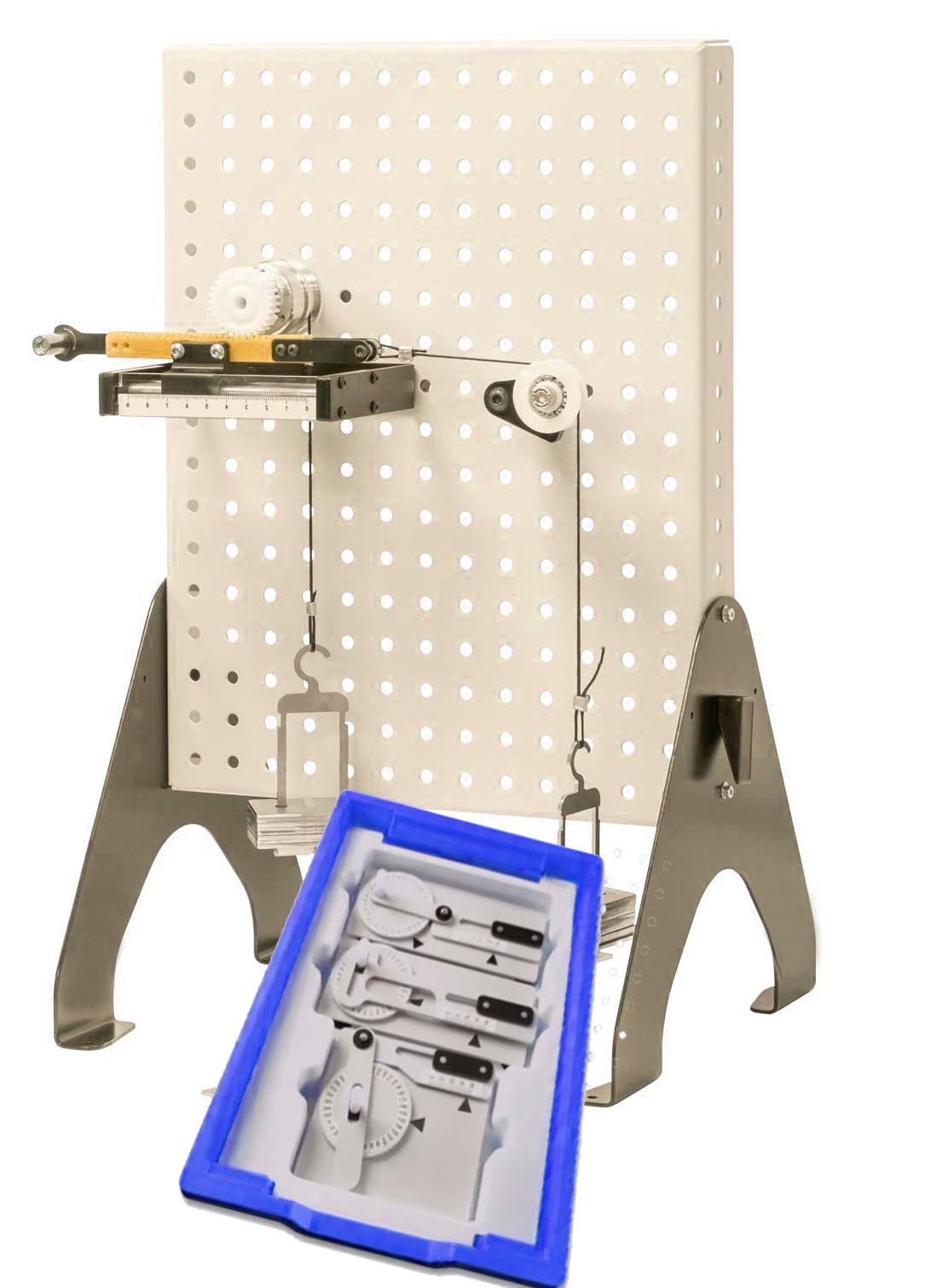




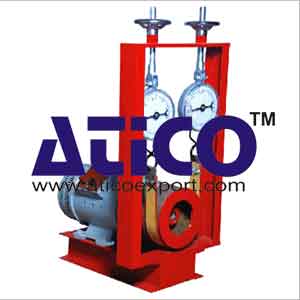
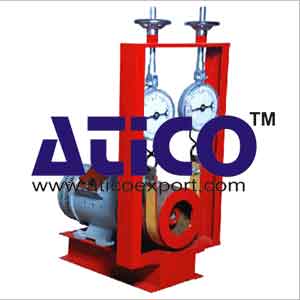
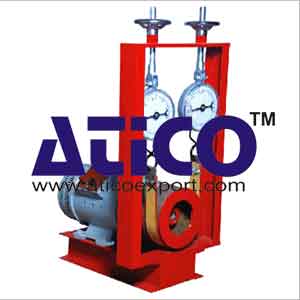
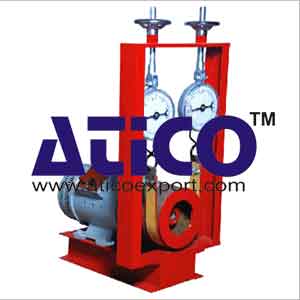
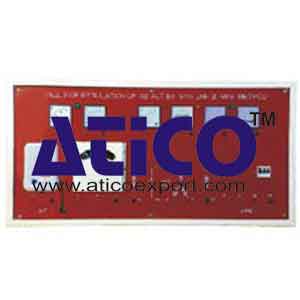



Product
Reviews
add Review
reviews
No Review Yet.